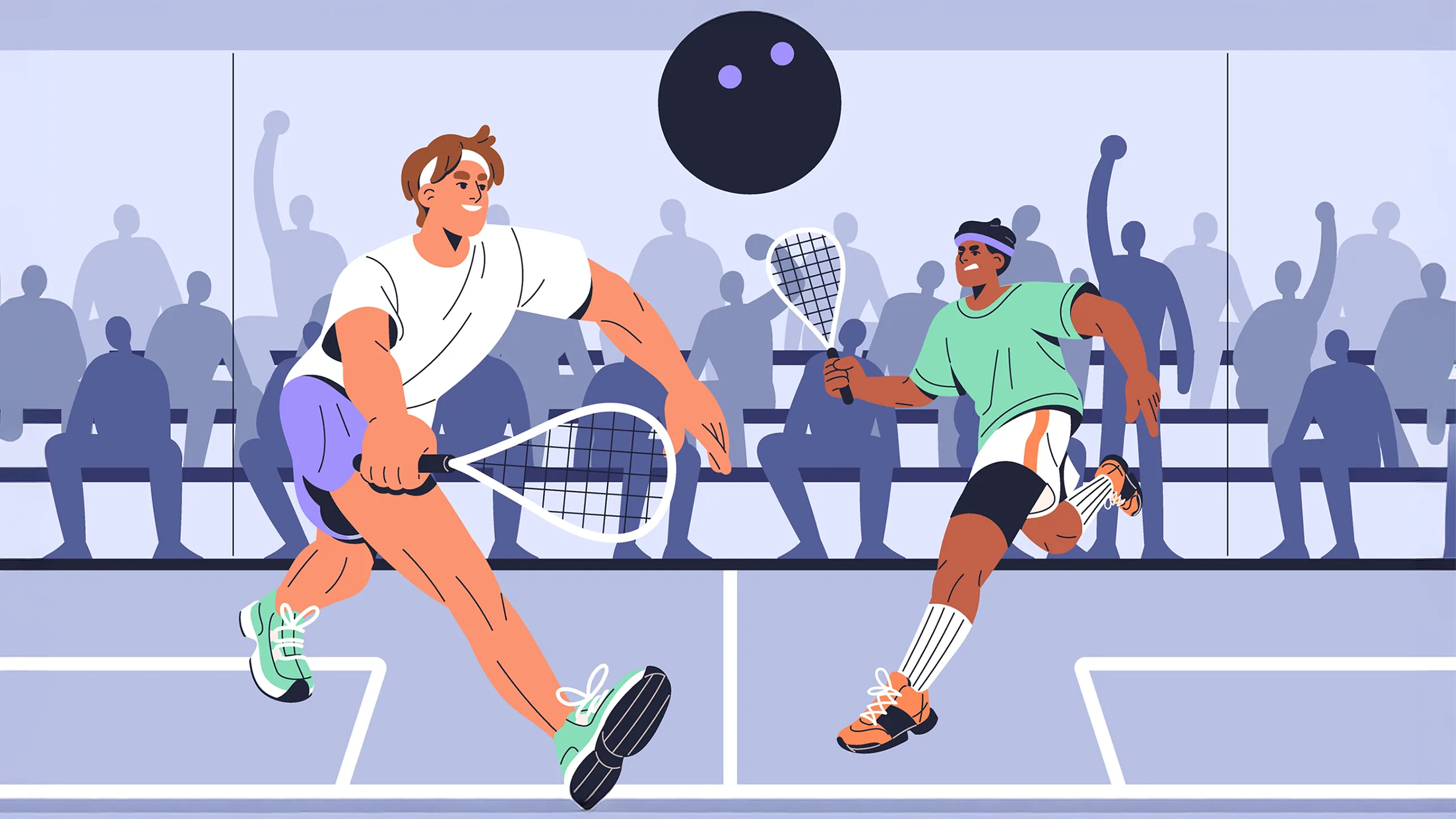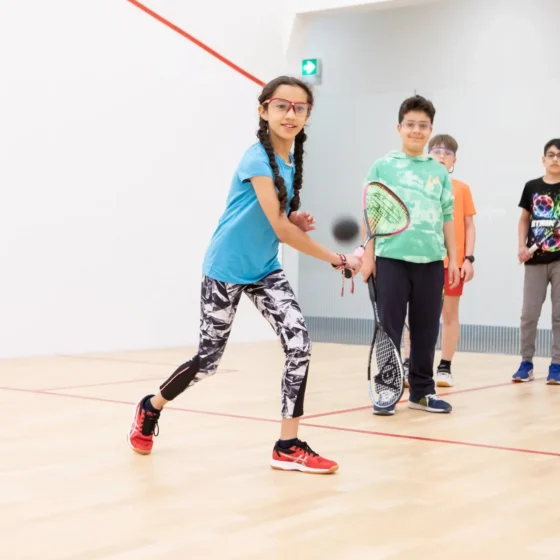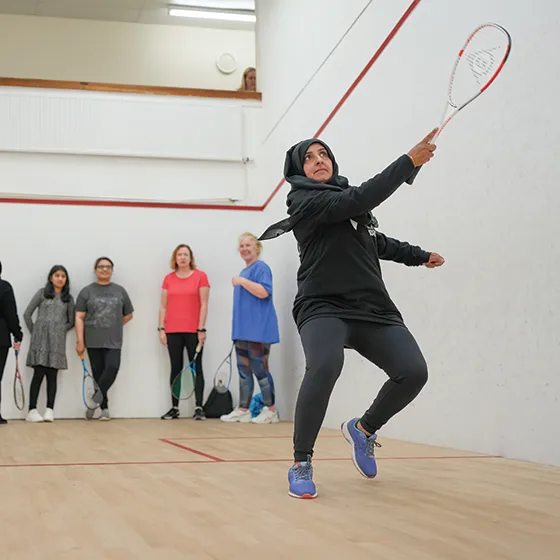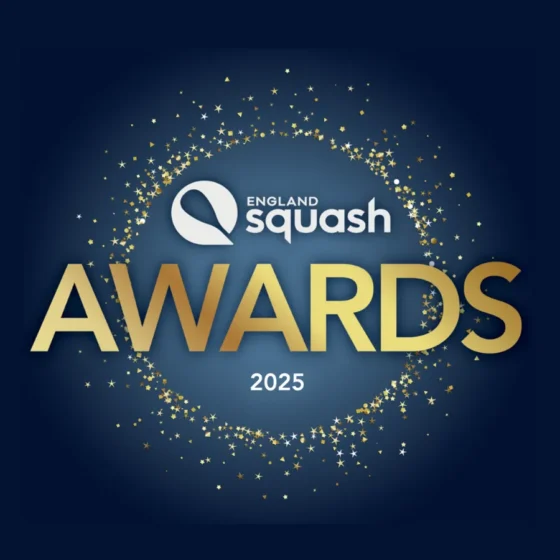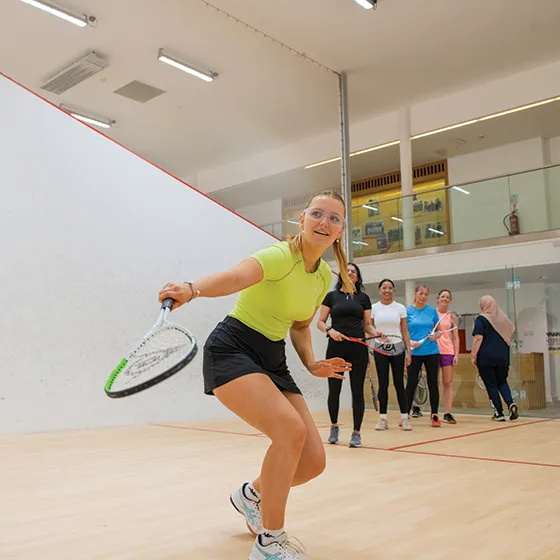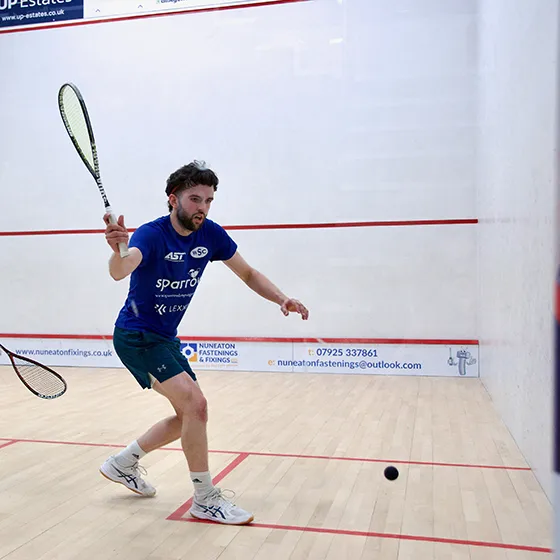Interested in taking up squash but feel a little daunted by some aspects of the sport and its culture?
Well, it’s time to address some of those concerns, with the help of two of the sport’s top coaches. Pontefract Squash Club’s Jayne Robinson was named the 2024 Squash England coach of the year, and Rob Thirst of the Connaught Club juggles a burgeoning coaching schedule with a continued playing career. As part of our mythbusting series, Rob and Jayne help us tackle some of the sport’s urban myths, providing that the best time to take up the sport is now…
It’s a young person’s sport
“Squash demands you be at your athletic peak, mentally sharp, and technically excellent, at least a seven or eight out of 10 in every skill to win gold,” says Rob describing what it takes to be the best of the best. But, as with many sports, you don’t need to be targeting Olympic gold to get enjoyment out of it. You don’t even need to be able to hit the ball at first, it’ll all come with practice, insists Jayne. “Some people think of squash as a young person sport, but if you play to your level, it shouldn’t. It doesn’t really matter what age you are, just come and give it a go.”
“You don’t have to be a world beater. You don’t have to play for a team, you just have to come and enjoy it. One of the things at Pontefract Club is that anybody plays with everybody. So the world number one might go on with a five-year-old junior. I don’t think you get that in many other sports, do you?”
Rob adds that there are many variations to equipment and formats that can be tailored to your age, condition, and ability. “Beginners should start with a red dot ball that bounces like a hot ball. This is really important as an entry point as it’ll make the rallies slightly more enjoyable and slightly more forgiving on the body.”
“Racquetball (also known as Squash 57, featuring larger racquets) is great for getting people in because the rallies can go on a bit longer, so you’re not having to go into such extreme positions because the ball bounces.Then the person might feel like they get a bit more of a workout from it straight away off the bat. It’s a great way to start.”
It’s a corporate sport
There was a time when any 80s movie set in the corporate or finance world had to include a scene on a squash court, featuring two bigwigs thrashing out their sweaty-browed deals. While every cliché has some basis in truth regarding the popularity of the sport within corporate confines, it probably didn’t do squash any favours for spreading its appeal.
Jayne acknowledges that it’s not always been easy to get the word out and push back against these stereotypes. “At Pontefract we’re an ex-mining town. We don’t see many of those corporate people. So I suppose we overcame those assumptions very early on here really, but it is a challenge for England Squash to promote it as much as they can, so that people actually know what it is. Because that, for me, is the biggest barrier. People just don’t know what squash is. They’ve heard of it, they might have seen the odd clip on a sketch show or film, but over the years it has been a challenge to promote it and get more people involved.”
Squash clubs are cliquey
So while squash is not the sole preserve of bankers and traders, neither is it, according to Jayne, a closed shop. “I think because I’ve always grown up around squash, it’s just the norm for me. But I suppose other people will say, ‘Oh I don’t know much about squash clubs, isn’t it cliquey?’. People may think that, but no it’s not. I think it comes from an old thing where people think because squash tends to be a bit smaller with not as many members as some other sports that it maybe a bit cliquey.”
Squash is dying
With the rise of other racquet sports like padel and pickleball, it’s common for some to see squash as yesterday’s sport compared to these upstarts. But, while Covid did take its toll, Rob insists that there remains a bright future. “Covid did affect many areas, particularly league squash. I’ve noticed that the strength in depth in some areas isn’t as strong. I remember the Norfolk League being fiercely contested pre-COVID, and now the same club has won it four years in a row.
Some people – what I call the ‘squash is dying brigade’ – remember the boom years, which I never saw because I wasn’t even alive. Now they see fewer people playing and think it’s all decline. For me, it feels normal because I’ve only been involved for about 10 years, so I don’t have that old comparison.
In my experience, it’s not dying. In fact, I know places that want to build more courts and clubs that don’t have enough capacity for the demand in the community. If they could, they’d add another court tomorrow, which goes against the general rhetoric that it’s not what it used to be.
Squash isn’t entertaining enough for the Olympics
It’s been a long road – with the sport’s first application to the IOC coming in the late 80s – but squash will finally make its Olympic bow at LA in 2028. It could prove to be a long-awaited gamechanger for the sport long denied a spot at the top table.
“I think everyone was enthusiastic and happy that, after many years of trying, squash finally got in. It’s incredible and will be a great spectacle, for the pros and for Olympic viewers who might never have seen the sport,” says Rob.
“From a global growth perspective, it’s already having an impact. For example, China has shown interest. They’re always aiming to win the most medals at the Olympics, and squash is another event they could target. I’ve seen it happen in snooker, with more Chinese players coming through. The same could happen in squash. Powerhouse nations like China and the US, which already have strong players, good participation, and investment, could really push the sport forward. That will have a knock-on effect for the rest of the world.”
Jayne is also excited about squash’s debut on the world stage, and hopes that it won’t be a one-off, “I just hope that it stays in the Olympics, because it’ll keep its profile high, and it’ll help with its funding, and hopefully the numbers grow,” adds Jayne.










